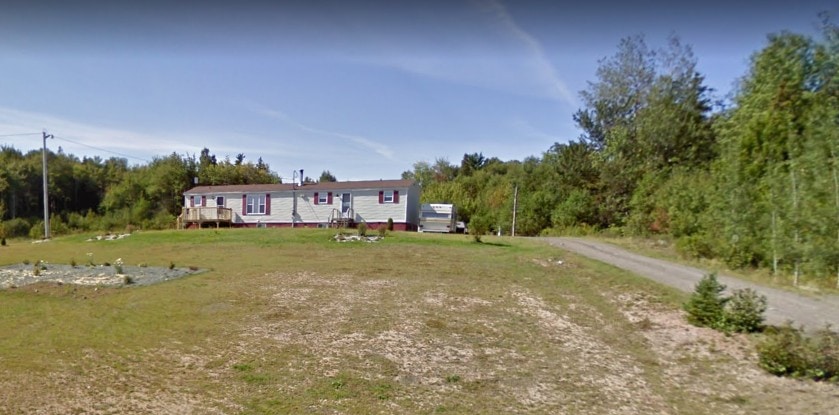KJIPUKTUK (Halifax) – This Remembrance Day, when we remember and reflect on the members of our armed forces who have died in the line of duty, let us also remember the African Nova Scotians who went overseas to fight for Canada during a number of armed conflicts.
Such was the case of Lionel Desmond, an African Nova Scotian who after two stints in Afghanistan suffered from Post Traumatic Stress Disorder (PTSD) and faced consistent anti-Black racism. It is important to understand that this racism has been contributing factor to his PTSD.

In 2017, Lionel Desmond, a young African Nova Scotian from the small community of Lincolnville and living in the Borden family home in Upper Big Tracadie, took his own life after he shot and killed his mother Brenda, 52, his wife Shanna, 31, and their 10-year-old daughter Aaliyah.
Lionel was a member of the Canadian Armed Forces and served in Afghanistan in 2007 with the 2nd battalion Royal Canadian Regiment’s India company. That tour of duty was said to be the bloodiest of the Canadian Military’s combat mission with many casualties as a result of the gruesome guerrilla campaign of the Taliban.
In Lionel Desmond’s case racism has emerged as a parallel narrative in the discussion over PTSD. Many family members, friends and others who have served in the CAF believe he also suffered from Post Traumatic Slavery Disorder (PTSD2). Post Traumatic Slave Syndrome refers to the legacy of enduring injury and pain activated and exacerbated by continuous incidents of racism and the resulting trauma.
See also: Raymond Sheppard: The role of racism in the Lionel Desmond case
As you know, PTSD is a mental health condition that is most often triggered by experiencing or witnessing a terrifying event. Symptoms may include flashbacks, nightmares, panic attacks, thought of suicide and severe anxiety, as well as uncontrollable thoughts about the event itself.
Most individuals suffering from PTSD have difficulty adjusting and coping, but over time and with good self-care, treatment and mental health care many will recover. Yet symptoms can become worse and last for years, interfering with daily living and affecting the quality of life. This is why immediate mental health treatment and services are so important.
Keep in mind that mental health issues do not necessarily show on the outside of the individual like other medical conditions. Equally, when one goes overseas to fight battles on behalf of Canada with the Canadian Armed Forces (CAF), they should not come back to Canada and Nova Scotia having to fight subsequent battles for justice and access to proper medical treatment.
During this Remembrance Day, let’s leave it up to the experts in PTSD and PTSD2 before we judge the actions of Lionel Desmond. Equally, let’s try to get our minds around what Lionel might have gone through in Afghanistan and within the Canadian Armed Forces.
The Government of Canada and the Canadian Constitution states that the “ The Constitution prescribes which powers – legislative, executive and judicial – may be exercised by the different organs of the state and sets limits on those powers. It also describes how powers will be distributed among the national and provincial governments.
The Constitution Act, 1867, makes several references to Defence. Section 15 gives the command-in-chief of the land and naval militia, and of all naval and military forces of Canada to the Queen; Subsection 91(7) states that the legislative authority of Parliament extends to the militia, the military and naval service, and defence.
The Canadian Charter of Rights and Freedoms provides guarantees that are subject only to such reasonable limits prescribed by law as can be demonstrably justified in a free and democratic society. The fundamental freedoms are those of: conscience and religion; thought, belief, opinion and expression (including the press and media); peaceful assembly; and association.
The Charter prescribes basic rights for individuals related to: democratic government; mobility in Canada; legal matters; equality regarding race, national or ethnic origin, color, religion, sex, age or mental or physical disability; and minority language education.
Canadians who decide to join the Canadian Armed Forces do so to serve their country, and therefore in turn the Government of Canada, the Department of National Defence and the Canadian Armed Forces must show their commitment to serve these brave women and men. I believe they have a duty to improve and expand the services they provide veterans and members of the Canadian Forces and their families.
When it concerns African Nova Scotians/ African Canadians it seems legal rights are not prescribed, nor is there equality regarding race or mental disability.
The Department of National Defence and the Canadian Armed Forces are the largest federal government departments, yet their attention to mental health, pain and suffering, and the occurrence of racism is lacking.
So, on November 11, 2019, please remember all sacrifices made on behalf of Canada, lest we forget.
See also: Raymond Sheppard: Stop delaying the Lionel Desmond enquiry!
With a special thanks to our generous donors who make publication of the Nova Scotia Advocate possible.
Subscribe to the Nova Scotia Advocate weekly digest and never miss an article again. It’s free!



